“I know you’re not getting enough of me, but you’re getting all there is”. Interestingly enough, this line—uttered by one of the main characters in Sunday Bloody Sunday—encapsulates not only the amorous dilemma present in John Schlesinger’s 1971 film, but also seems to perfectly embody the central themes permeating Brokeback Mountain. Since its theatrical release in 2005, director Ang Lee’s superbly crafted and evocative film was met with both backlash and praise for its startlingly frank portrayal of two cattle ranchers who find love but are ultimately forced to deny the greatest passion either has ever felt. Although employing different plot lines and technical elements than Lee’s picture, Schlesinger’s Sunday Bloody Sunday also sheds light onto the dynamics underlying male homosexual intimacy—not to mention how both movies employ Hollywood leading men for these roles. The story of Sunday centers on a rather novel love triangle: a London doctor in his forties (played by Network’s Peter Finch), a divorced woman in her thirties, and the young man they are both in love with. Since the young man makes no attempt at keeping his dual affairs a secret, both the doctor and the woman know of each other but don’t seem to be particularly concerned: they are willing to accept this arrangement in order to have some love instead of none at all. In their own respects, both films are tragic love stories that use male homoeroticism as a means of exploring the complex nuances of individuals who are trying to reconcile their desires with the conflicting pressures imposed by their surroundings.
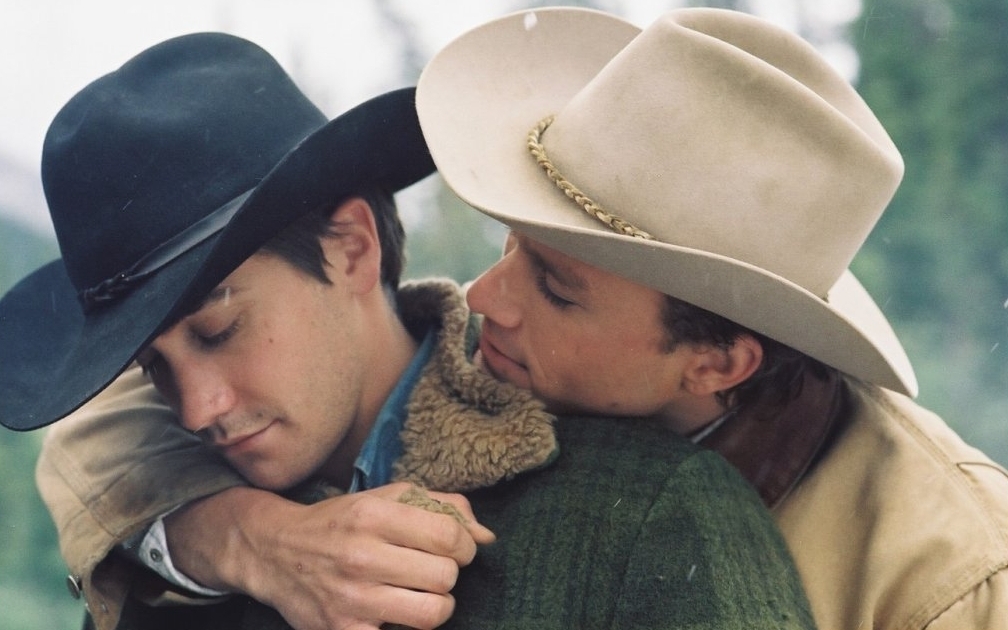
I cannot continue without first noting how both pictures have also been subject to misconceptions that merely strike the surface of their content: Brokeback Mountain has countlessly been termed ‘the gay cowboy movie’ and Sunday Bloody Sunday has been regarded as a movie about open-minded people who accept this curious arrangement with civility. Yet these classifications are grossly oversimplified and barely do justice to the thematic and structural dimensions of each film. It goes without saying how the most obvious parallel between Sunday and Brokeback is how the male characters engage in both heterosexual and homosexual relations. By presenting the male as a [bisexually] dual object of desire, both films reconfigure the prevailing representations of female sexuality in the cinema. (After all, even contemporary films that depict homosexual subject matter often do so through the sensual nature of lesbian romance). In utilizing the emotional and physical bonds that exist between two men, Schlesinger and Lee boldly challenge the cinematic status quo and use this shifted sexual gaze as a lens for illustrating the foreboding, tender sadness that can exist between lovers. Set against a backdrop of either the gloomy cosmopolitan London milieu or the bleak American rural landscape, both Schlesinger and Lee masterfully incorporate their characters’ settings to amplify their tale of fleeting romance with a subtext of melancholy.
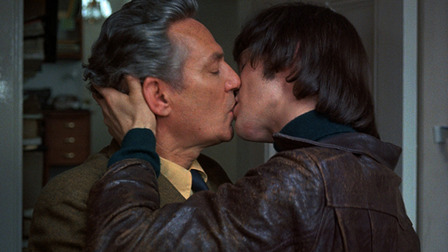
There’s no question that the central lover in Sunday Bloody Sunday is bisexual, but attempts at classifying the sexual identity of Brokeback Mountain’s Ennis (Ledger) and Jack (Gyllenhaal) are not as simple. After all, they both end up marrying and having children with women after their initial romantic tryst, and for the most part remain married for years during their secret love affair. Did Ennis and Jack marry these women out of a true desire to do so? Was it an act of self-denial; an attempt to manipulate themselves into loving these women to either forget the pain of being separated or suppress the shame of being attracted to another man? Or were the marriages nothing more than a blind product of societal expectations and obligations? I think that Lee’s purpose was to provide no clear answer. As Roger Ebert notes, the movie wisely never steps back to deliver the larger picture of gay self-identity: it is specifically the story of these men and their love from their perspective. “You know I ain’t queer,” Ennis tells Jack after their first night together. “Me neither,” says Jack.
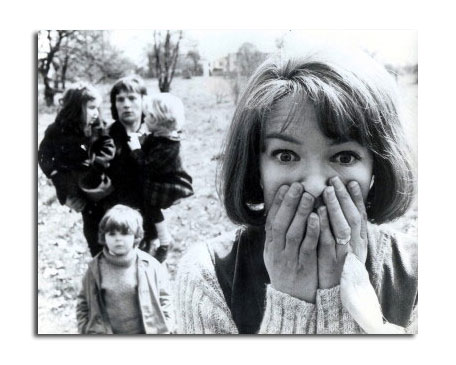
Unlike Brokeback Mountain, however, there seems to be no sexual secrecy in Sunday Bloody Sunday: it truly embraces the concept of sharing lovers. I therefore find it funny that Brokeback Mountain stirred such controversy and uproar considering Sunday’s open portrayal of polygamy (which seems more bold and unconventional than a secret gay romance), not to mention that it was released several decades ago at a time when society was far less accepting of homosexuality. Unlike the kind and intelligent male doctor and female divorcee lovers he beds, Bob Elkin is immature, selfish, dimensionless and impulsive. He recognizes the insecurities of his lovers, and subliminally exploits their fear of loneliness as a way to continue his self-indulgent behavior. For this reason, it is these two older characters that truly provide the core of this movie. Unlike the protagonists in Brokeback, the doctor doesn’t at all seem conflicted by his homosexuality and in fact the characters in Sunday all seem very sure and comfortable with their sexual identities. It’s not the prejudices of society or the confused shame of homosexual tendencies that drive the tension of Schlesinger’s film. Rather, the sympathetic undertones of Sunday are established through the emotional toll that this romantic arrangement takes on the older lovers.
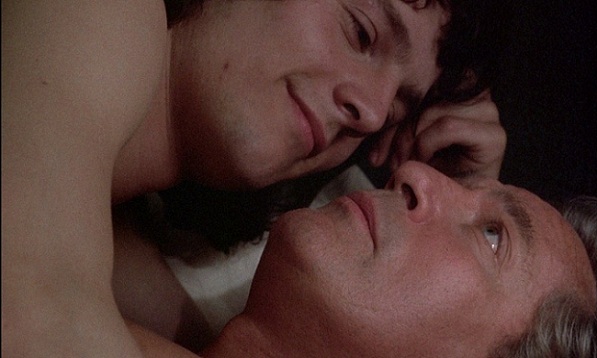
Lee and Schlesinger frequently use medium-to-close-up reaction shots as a means of delving into the interiority of each character, yet Sunday focuses almost all of these shots on the older lovers to establish the sense that the film is from their perspective—this is their story. Whereas Brokeback uses these close-ups as a way of highlighting the intense emotional bond between Jack and Ennis, the close-ups in Sunday are used as a tool to showcase the detachment and isolation of the doctor and woman. It is true that on the surface they seem graceful in accommodating themselves and accepting the void of a love they crave, but we soon understand that perhaps they would in fact not be so civilized if they truly felt deeply about the boy. Accepting the arrangement was a form of self-preservation: “…they shared him not because they were willing to settle for half, but because they were afraid to try for all” (Ebert). Another curious observation is how both of these films seem to play into the polyamorous stereotypes that surround bisexuality. Whether presented through a love triangle or leading a dual life, both films seem to perpetuate that frustrating and oftentimes inaccurate mutual exclusivity between bisexuality and monogamy.
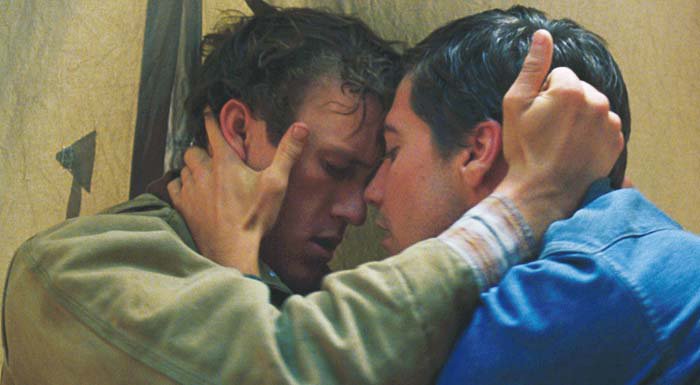
As I was considering the parallels and differences between these two films, I could not help but notice the discrepant ways each director presents gay male intimacy. With its focus on the physical mechanics of male homosexual intercourse, Brokeback Mountain authentically explores the primal ecstasy and intense passion between Ennis and Jack. I applaud Ang Lee for his approach; which was not at all graphic or gratuitous. However, the sexual intimacy between Elkin and the doctor were far more brief and emotionally removed. Framed in only their shoulder region to their heads, these shots seemed very pulled back and prevented the audience’s emotional investment into these lovers’ amorous connection. In light of Sunday’s storyline, perhaps that was strategically done, or maybe that was the only way to make gay male sex palatable for mainstream audiences at the time. Yet despite these differences, filmmakers Ang Lee and John Schlesinger both present powerfully subjective portraits of self-discovery and the wistfully nostalgic nature of fleeting love. Brokeback Mountain and Sunday Bloody Sunday impressively use these tender male bonds to illuminate the loss of love, or the absence of it altogether.
